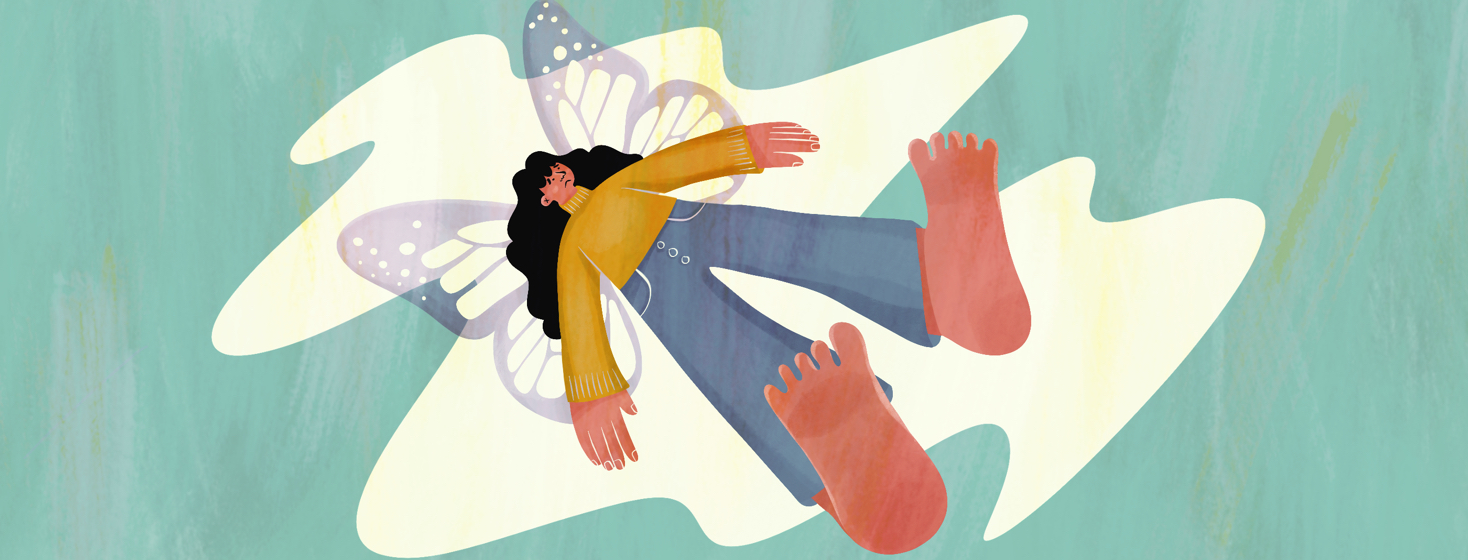Dealing with my Diagnosis
It's been almost 4.5 years since I got my official diagnosis but, I still vividly remember that day. I was so anxious and scared going to that doctor's appointment. Tears rolled down my face as soon as my rheumatologist said the word lupus. I began to sob uncontrollably. A part of me already knew what was coming. All the test results and symptoms pointed to lupus. But I just wasn't ready to hear those words. Even though I desperately wanted to find an answer to what was going on with my body. I was thankful that my boyfriend was there, and he held my hand as he tried to console me. Sadness, anger, numbness, frustration, denial all swept through me. I was on an emotional rollercoaster ride, and I just wanted it to be over. The doctor tried to console me as well and started me on Plaquenil and prednisone. On that day, I felt like a part of me had died, and oddly enough, I went through the 5 stages of grief.
1. Denial
I didn't want to accept the diagnosis. I wanted to get a second opinion and booked an appointment with another rheumatologist. He ran further tests, and he told me it was lupus as well. But that wasn't enough for me. I still needed more confirmation and booked another appointment with another rheumatologist. He repeated the tests and even did more than the last one, and of course, I got the same results. It was lupus.
2. Anger
I was so angry and started questioning life. I remember thinking, why me? What did I do to deserve this? I was only 27 and was actually starting to "live." School was done, I really liked my job and I was dating this really nice guy. I really thought things were finally falling into place. I wasn't a bad person. Yet, I was getting punished.
3. Bargaining
I started doing my research online. I thought what if I exercised more? What if I ate better and became a vegetarian? What if I gave up alcohol? What if I got more sleep? What if I started donating to charities? What if I cut out some stress in my life? Would this help me out and get rid of lupus? I was willing to try out anything to see if it would just go away. I was in a state of toxic positivity, convincing myself that the hardships of life with lupus wouldn't have an impact if I controlled the world around me. But, unfortunately for me, my lupus was here to stay.
4. Depression
My lupus was not curable. It was here to stay with me forever. I had a good support system, but they said it didn't help much. They didn't understand what I was going through. I felt broken and damaged. I was sad all the time thinking about all the what-ifs and what could have been. I knew my life was forever changed and there was no going back.
5. Acceptance
It took months for me to be able to accept my diagnosis. Oddly enough, another friend of mine also got diagnosed with an autoimmune disease. We started talking, and we were able to help each other out. Through each other, I finally found someone I could connect and talk with, making it easier. Soon after, I also turned to social media where I was able to meet other people like me. I saw that I was not alone. I began to realize that my diagnosis was a part of me but I didn't have to let it control me.
My lupus journey has not been easy, but I have now come to terms with it. Lupus is just part of my story, not my whole story. A diagnosis is not a death sentence. Yes, a part of me did die. But, there is still so much more ahead of me and I will not let lupus define who I am.

Join the conversation